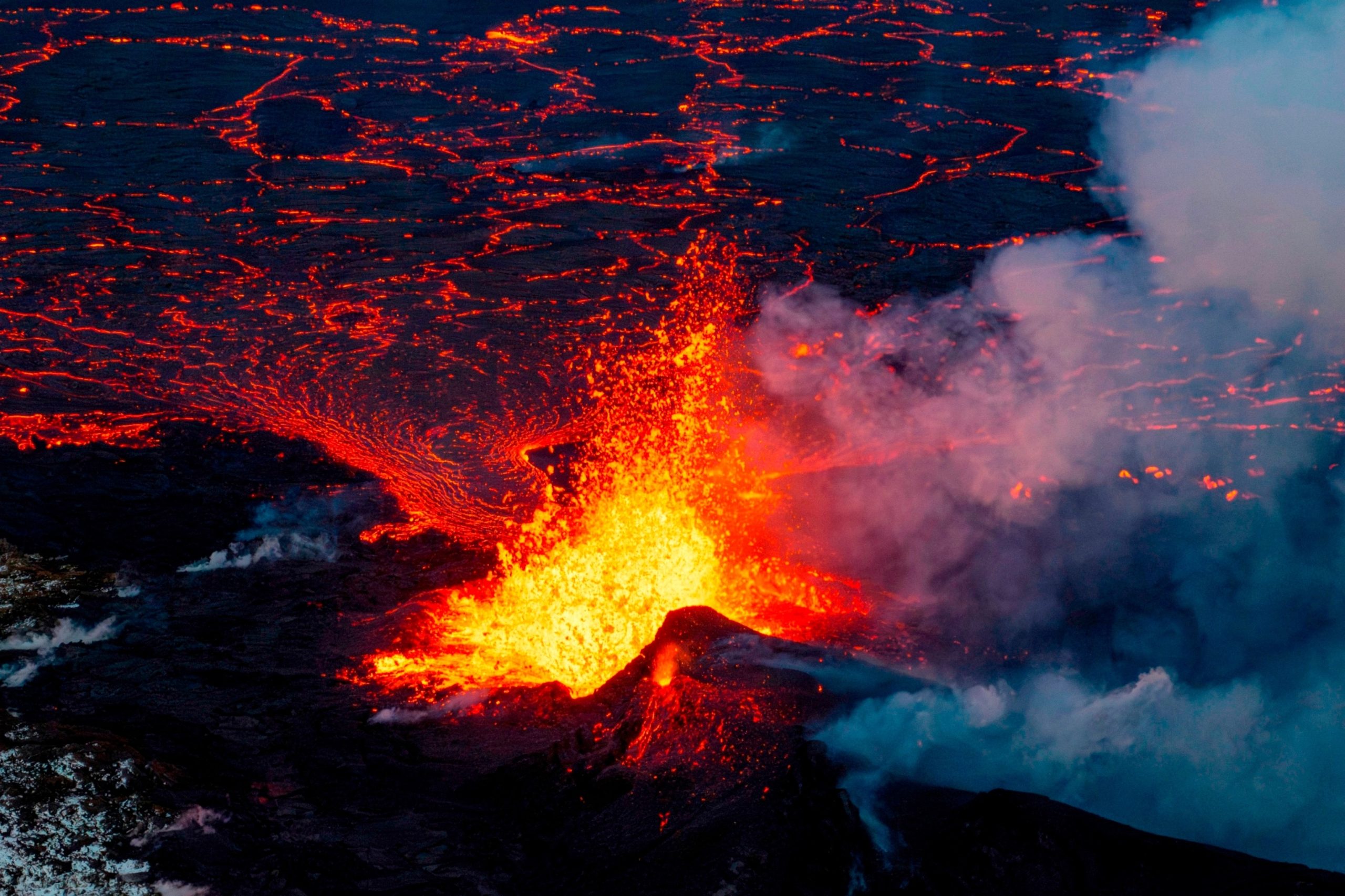Toxic Air Warning Issued as Iceland Volcano Erupts
Iceland, known for its breathtaking landscapes and geothermal activity, is once again making headlines as one of its volcanoes erupts. The eruption of the Fagradalsfjall volcano has not only attracted tourists and scientists but has also raised concerns about the potential health hazards associated with the release of toxic gases into the air.
The Fagradalsfjall volcano, located on the Reykjanes Peninsula, began erupting on March 19, 2021, after being dormant for nearly 6,000 years. While the eruption itself is a mesmerizing spectacle, it comes with its fair share of risks. The primary concern is the release of volcanic gases, including sulfur dioxide (SO2), which can have detrimental effects on human health.
Sulfur dioxide is a colorless gas with a pungent odor. When inhaled, it can cause respiratory issues such as coughing, wheezing, and shortness of breath. People with pre-existing respiratory conditions like asthma are particularly vulnerable to the effects of sulfur dioxide exposure. Prolonged exposure to high levels of this gas can lead to more severe health problems, including bronchitis and other respiratory infections.
To address these concerns, the Icelandic Meteorological Office (IMO) has issued a toxic air warning for the areas surrounding the volcano. They have advised people to stay indoors and keep their windows closed to minimize exposure to the harmful gases. Additionally, individuals with respiratory conditions or compromised immune systems are strongly advised to avoid the affected areas altogether.
Monitoring stations have been set up near the eruption site to measure the levels of sulfur dioxide and other gases in the air. These measurements help authorities determine the severity of the situation and make informed decisions regarding public safety. The data collected from these stations is regularly updated and made available to the public through various channels.
In addition to the health risks, the eruption has also raised concerns about the impact on air travel. Volcanic ash, which consists of tiny particles of rock and glass, can pose a significant threat to aircraft engines. In 2010, the eruption of the Eyjafjallajökull volcano in Iceland caused widespread disruption to air travel across Europe, leading to the cancellation of thousands of flights.
Fortunately, the Fagradalsfjall eruption has not produced significant amounts of volcanic ash so far. This has allowed air traffic to continue without major disruptions. However, authorities are closely monitoring the situation and are prepared to take necessary precautions if the ash plume intensifies.
Despite the potential risks, the eruption of the Fagradalsfjall volcano is also an opportunity for scientists to study and learn more about volcanic activity. The volcano’s proximity to the capital city of Reykjavik makes it easily accessible for researchers, who are taking advantage of this rare event to gather valuable data. Scientists hope that studying this eruption will provide insights into the behavior of volcanoes and help improve volcanic hazard assessments in the future.
In conclusion, the eruption of the Fagradalsfjall volcano in Iceland has triggered a toxic air warning due to the release of sulfur dioxide and other gases. While the health risks associated with these gases are a cause for concern, authorities are taking necessary measures to ensure public safety. Monitoring stations are in place to track gas levels, and people are advised to stay indoors and avoid affected areas. Additionally, air travel has not been significantly impacted so far, but precautions are being taken to prevent any potential disruptions. Despite the risks, scientists are seizing this opportunity to study the eruption and gain a better understanding of volcanic activity.



